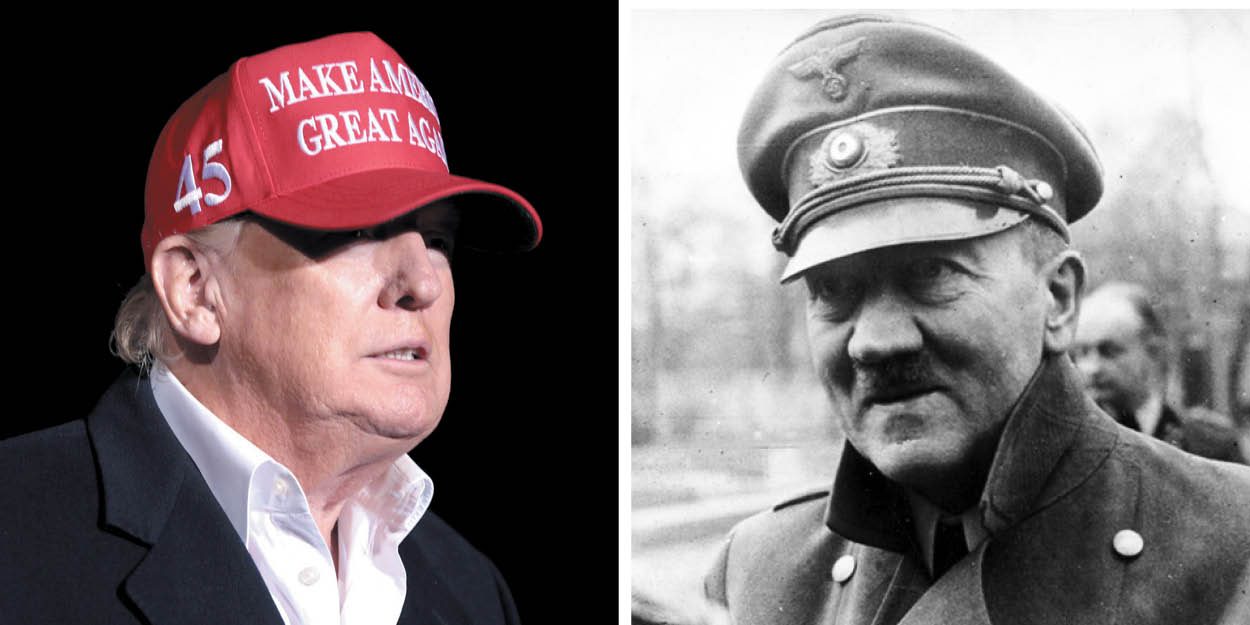
Cue the ominous strings and dramatic close-ups: according to a cluster of academics and historians, the Trump administration’s recent moves look less like American conservatism and more like a binge-watch of authoritarian regimes’ greatest hits. The buzzword they use—“proto-fascism”—isn’t just academic shade. It’s a warning sign. And it’s got critics asking the question that lights up Twitter like a dumpster fire: would today’s Republicans have sided with Germany in World War II?
The Research Meets the Reality Show
Scholars like Thomas Palley have argued that the Republican Party’s decades-long flirtation with ethnonationalism and “strongman” politics paved the road for Donald Trump’s second act. Their claim: the GOP has normalized the kinds of rhetoric and tactics that, historically, open the door to authoritarianism. And now, they say, Trump’s 2024–25 administration is giving the country a live demonstration.
1. Enemy Aliens Act Redux
In March 2025, Trump invoked the Alien Enemies Act—a dusty 1798 law—ostensibly to target the Venezuelan gang Tren de Aragua. Critics call it the biggest due-process rollback in decades. Hundreds of Venezuelans and Salvadorans were deported to El Salvador and jailed in conditions so grim human-rights groups are screaming déjà vu. Detractors say this is a page ripped from the 1930s authoritarian playbook: label a group as an “invasion,” strip them of rights, and ship them out.
2. Watchdogs Muzzled, Oversight Gutted
Under Trump 2.0, the Department of Homeland Security’s civil-rights branch has been effectively decapitated, watchdog offices shuttered, and ombudsmen who investigate abuses shown the door. Even universities have been punished: the University of California system saw federal funds frozen over its handling of protests and climate initiatives. This is the stuff authoritarian regimes do when they’re tired of referees calling fouls.
3. Erasing Inconvenient History
The Trump administration has ordered the removal of educational signage at national parks about climate change, Japanese internment, and slavery—because apparently acknowledging history is now “partisan.” The Pentagon has forced journalists to sign loyalty pledges promising not to hold “unauthorized” documents, even unclassified ones, to keep their press credentials. Media critics say this is a direct attack on the First Amendment. Pop-culture translation: it’s like if Darth Vader banned the Rebel Alliance from tweeting.
4. Detention and Solitary Confinement
ICE under Trump has dramatically expanded solitary confinement of detainees, including people with mental-health vulnerabilities. Rights groups are suing over courthouse arrests and mass deportations without hearings. The administration’s “Protecting the American People Against Invasion” executive order expands expedited removal and penalizes sanctuary jurisdictions. If you’re looking for a 1930s parallel, this is it: criminalize and isolate the “other.”
Fascist Vibes
None of these policies alone equals Hitler. But together? Critics say they form a mosaic of authoritarian impulses: demonizing minorities, undermining oversight, erasing inconvenient history, and punishing dissent. The aesthetic may be reality-TV gold instead of goose-stepping parades, but the underlying moves feel uncomfortably familiar to anyone who’s cracked a history book.
Critics Push Back
Supporters call the comparisons hyperbolic, pointing out that America still has courts, elections, and a robust press. But historians warn that democratic backsliding doesn’t arrive all at once; it creeps in under the slogans of “law and order” and “national security,” until you wake up and the institutions meant to save you have been gutted.
Would Today’s GOP Have Sided with Germany?
Nobody can literally poll 2025 Republicans on 1939 Germany. But the ideological signals—white-nationalist dog whistles, admiration for strongmen, hostility to pluralism—give critics plenty of ammunition. The fear isn’t that the GOP will literally fly swastikas; it’s that they’re rehearsing the same moves in a new costume, hoping no one notices the script.
The question “Would Republicans have sided with Germany in WWII?” is rhetorical—but the warning is real. With policies that echo authoritarian regimes and rhetoric that stokes fear of the “other,” Trump’s GOP is inching closer to the very forces America once fought to defeat. And this time, it’s all happening in prime time.




